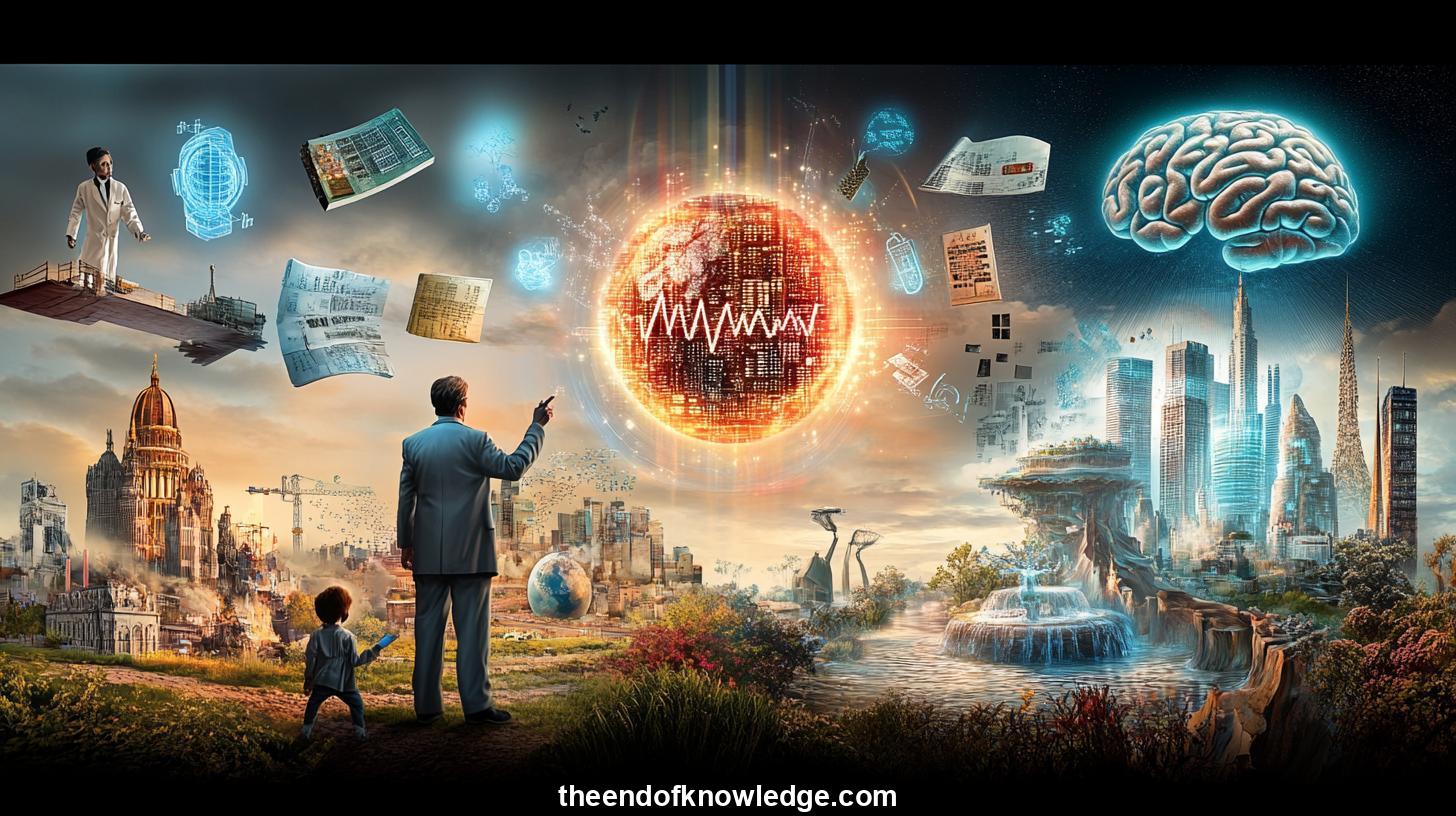 >
>
Concept Graph, Resume & KeyIdeas using DeepSeek R1 :
Resume:
The conversation revolves around the transformative impact of artificial intelligence (AI) on various industries and society, emphasizing the need for education and adaptation. Edward Ordax discusses how AI and machine learning are reshaping industries like healthcare, highlighting challenges such as data quality and resistance to change. He underscores the importance of leadership in driving AI adoption, comparing figures like Elon Musk and Sam Altman, and their visions for the future. The ethical implications and societal shifts brought by AI are also explored, including job displacement and the need for empathy in human-AI interactions. The discussion concludes by acknowledging AI as a historical opportunity for progress, urging proactive engagement to harness its potential responsibly.30 Key Ideas:
1.- AI adoption requires significant educational efforts to understand its capabilities and limitations.
2.- Resistance to AI stems from fear of job displacement and lack of awareness.
3.- Leaders like Elon Musk exemplify visionary leadership in AI innovation.
4.- Sam Altman's role at OpenAI highlights the importance of strategic business leadership in AI.
5.- AI integration in healthcare faces challenges like data privacy and algorithmic bias.
6.- AI models rely on vast datasets, raising concerns about data quality and security.
7.- The future of AI may involve autonomous agents and multi-agent systems.
8.- Personalized AI assistants could revolutionize individual productivity and decision-making.
9.- AI ethics must address hallucinations and misinformation in AI outputs.
10.- Human oversight remains crucial in AI systems to ensure reliability and safety.
11.- AI-driven automation will significantly impact employment across various sectors.
12.- The societal impact of AI requires careful management to avoid exacerbating inequalities.
13.- AI presents a historical opportunity for innovation and progress.
14.- Proactive engagement with AI is essential to shape its future responsibly.
15.- The development of AI reflects broader societal values and priorities.
16.- AI systems must be designed with transparency to build public trust.
17.- Collaboration between humans and AI will define the future of work.
18.- AI has the potential to solve complex problems across industries.
19.- The ethical use of AI demands ongoing dialogue and regulation.
20.- AI innovation requires balancing technological advancement with societal needs.
21.- Education systems must evolve to prepare workers for an AI-driven economy.
22.- AI leadership involves navigating both technical and ethical challenges.
23.- The integration of AI in business processes is becoming increasingly essential.
24.- AI models are evolving to handle complex tasks beyond current capabilities.
25.- The future of AI will be shaped by breakthroughs in hardware and software.
26.- AI adoption in healthcare must address issues like patient consent and data security.
27.- AI has the potential to enhance decision-making in critical industries.
28.- The societal impact of AI will be profound, requiring adaptive strategies.
29.- AI innovation must be inclusive to avoid marginalizing certain groups.
30.- The responsible development of AI is crucial for maximizing its benefits.
Interviews by Plácido Doménech Espí & Guests - Knowledge Vault built byDavid Vivancos 2025